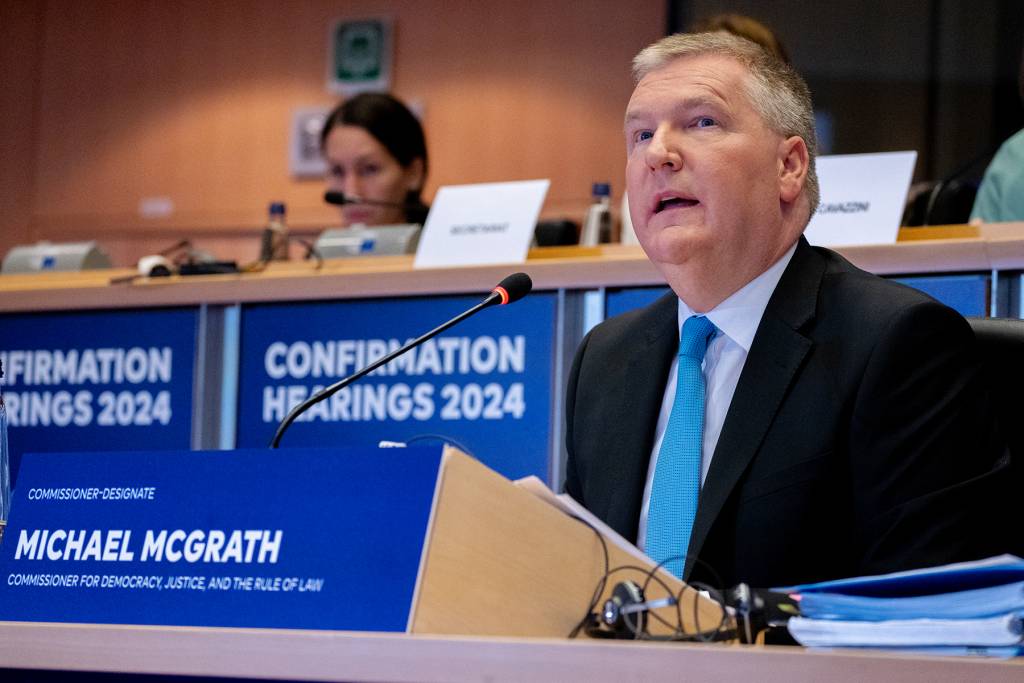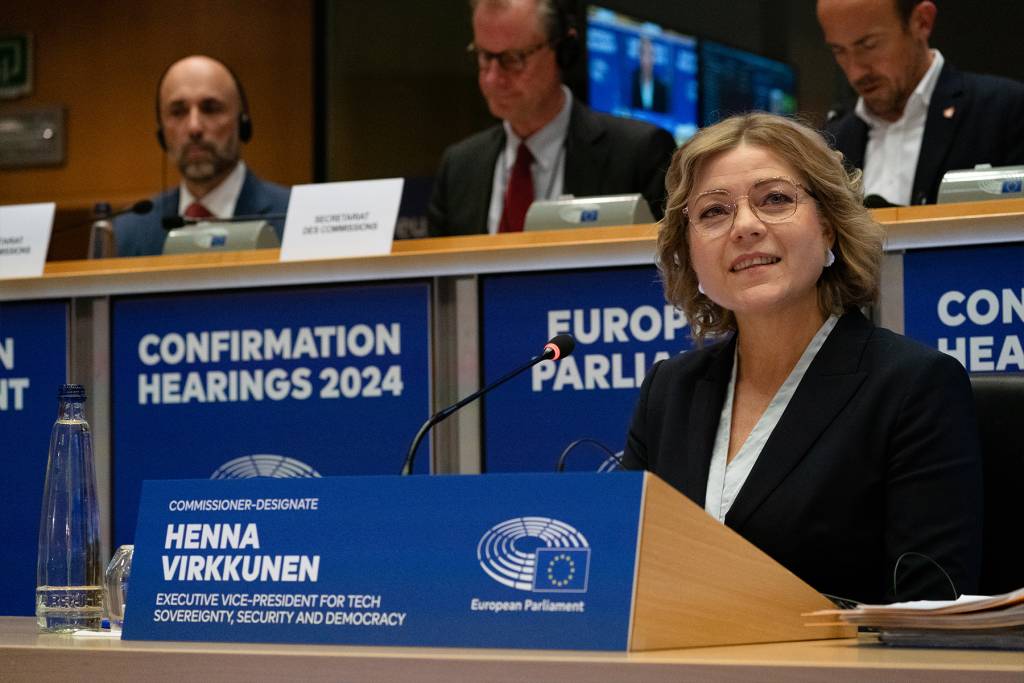The recent round of EU Commissioners designate confirmation hearings in the European Parliament, showed the main priorities on digital democracy of the new Commission.
Led by Executive Vice-President for Tech Sovereignty, Security and Democracy Henna Virkkunen and Commissioner for Democracy, Justice and Rule of Law Michael McGrath, the Commission is setting an agenda focused on expanding regulation, strengthening protection, and introduction of digital fairness.
Key New Regulations
The new Commission proposed a few additions to the already existing regulatory framework. The European Democratic Shield is one of them, focused on safeguarding electoral processes from manipulation and external interference. In its initial form it was supposed to cover a new EU body for disinformation detection, „uncompromising” DSA enforcement, new regulation on AI content & deepfakes.
Consumer protection is another angle that will be visibly expanded, according to the Commissioner’s hearings. After the hearings we know more about the Digital Fairness Act, which will address concerns about dangerous products, especially from Chinese platforms, quality of interfaces, and regulation of the scope of influencer activities. The main narrative is focused on risk towards vulnerable groups (especially children and minors) using potentially risky digital products spanning from promotional content through online games to e-cigarettes.
I will take forward a Digital Fairness Act to reinforce consumer protection in targeted areas to complement the existing EU digital rule book. I want to make sure that consumers are not exploited for commercial purposes. That social media influencers are not misleading our consumers and that our children are sufficiently protected online. I will address dark patterns marketing by social media influencers, addictive design of digital products and unfair personalisation practices.
– McGrath stated during his hearing

Michael McGrath, Commissioner for Democracy, Justice and Rule of Law
Enforcing Digital Services Act
Both commissioners share a common view that the Digital Services Act should be actively enforced rather than just existing as a regulatory framework, with particular emphasis on protecting minors and ensuring platforms cannot delay or avoid compliance with EU regulations.
Virkkunen plans to significantly strengthen the Commission’s enforcement capabilities by doubling the DSA enforcement team from 100 to 200 people by the end of next year. Her strategy includes close collaboration with civil society representatives, researchers, and whistleblowers, and she’s committed to swift action when platforms violate rules, particularly if they pose direct threats to citizens.
With the Digital Service Act and the Digital Markets Act, we have set standards to protect the fundamental rights of citizens when using online services, as well as ensuring fair competition in the online world. Having been to parliament’s ITRE rapporteur on DSA. I’m very committed to applying both the DSA and DMA fully.
– Executive Vice-President for Tech Sovereignty, Security and Democracy assured during the hearing.
Michael McGrath’s approach to DSA complements Virkkunen’s work by focusing on specific areas where the DSA intersects with consumer protection and democratic values. He sees DSA as part of a broader regulatory framework and aims to fill gaps not covered by current regulations.
This is complemented by the European Media Freedom Act, which aims to strengthen media independence and ensure journalist safety—both crucial elements for maintaining democratic discourse in the digital age, as McGrafh said in European Parliament:
We must strengthen resilience in our societies, improving awareness of disinformation and media literacy, particularly among younger generations. Media freedom and the safety of journalists are central to a questioning, dynamic and democratic society.
Civil Society Engagement
Commissioners recognise the significant role of NGOs and civil society organisations in maintaining democratic values. McGrath, in particular, has positioned himself as a mediator between member states, emphasising the importance of supporting civil society initiatives and upholding common European values.
I will fully engage with Member States acting as an honest broker to prevent rule of law related issues occurring in the first place and to resolve those that arise as a forthright guardian of our values. I will also engage with civil society organisations and stakeholders underground.
– he declared in his opening statement.
Public-Private Collaboration
A visible aspect of the Commission’s strategy is its emphasis on enhanced collaboration with the private sector. Virkkunen has specifically highlighted the need for partnership with industry stakeholders to address cybersecurity challenges posed by new technologies. In her written answers she wrote:
I would focus on the implementation and enforcement of the new laws both for cybersecurity of critical entities (NIS2) and product security (Cyber Resilience Act) in an innovation and business-friendly way. I would work with authorities and industry to raise the cybersecurity maturity and invest in strengthening detection and response capabilities. We need to take concerted and decisive action against cyber criminals and ransomware gangs.
During the hearing Virkunnen once again stressed her willingness to cooperate with business:
This will be one of my main priorities: to cut red tape, bureaucracy and extra administration to make Europe an easier place for businesses.
This collaborative approach extends to the implementation of the Digital Services Act, with both Commissioners pledging close cooperation on technological sovereignty and security matters.

Henna Virkkunen, Executive Vice-President for Tech Sovereignty, Security and Democracy
Consumer Protection and Business Environment
The Commission has put forward an agenda featuring various initiatives designed to enhance the business environment while safeguarding consumer rights. They plan to streamline GDPR procedures with a particular focus on making compliance easier for businesses. Additionally, the agenda emphasizes the importance of legal stability as a means to boost business competitiveness, as McGrafh said:
The rule of law as a precondition for a mutual trust and a vital element of competitiveness and the fostering of a business environment that supports investment and innovation.
The Commission also aims to step up efforts in fighting financial crimes and corruption. Furthermore, they intend to reinforce the connection between the disbursement of EU funds and adherence to rule of law principles.
Respect for the rule of law is a must for EU funds. We will propose that EU funding also be dedicated to national measures, for example, on fighting corruption and to protecting the EU financial interests.
– declared Commissioner for Democracy, Justice and Rule of Law.

